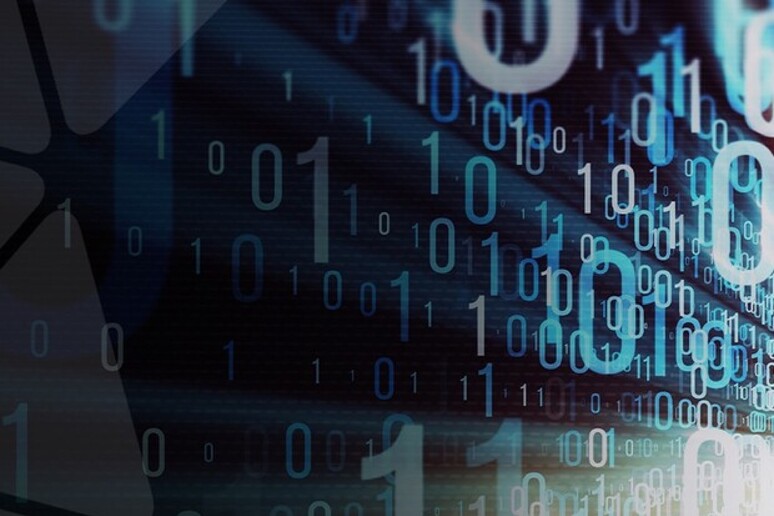By Alessio Jacona*
The European SOLARIS project to study
how to manage the threats and opportunities that generative
artificial intelligence present to democracy, political
engagement and digital citizenship has kicked off, featuring
ANSA among the partners.
"The risk is not only that of ending up believing things that
are not true, but also, and above all, of not being able to
believe in anything anymore," said SOLARIS project Federica
Russo.
This sums up perhaps the most serious threat posed by infodemics
- the uncontrolled circulation of large quantities of unverified
and often false information - when it is enhanced by generative
artificial intelligence: making true and false almost (if not
entirely) indistinguishable.
SOLARIS is a European research project, which over the next
three years aims to define methods and strategies to manage the
risks and threats, but also the opportunities, that generative
artificial intelligence present to democracy, political
engagement and digital citizenship.
Conceived exactly one year ago with a focus on generative
adversarial networks (GANs) and their ability to generate
increasingly realistic deepfake images and videos, after
winning a European call for proposals, Solaris is now expanding
its focus to other generative AI technologies, such as
Midjourney and ChatGPT.
"In the last few months we have witnessed an explosion of the
generative AI phenomenon," said Russo, who is a philosopher of
science, technology and information with the University of
Amsterdam and University College London, "a sort of
democratisation that has drastically lowered the access
threshold" effectively multiplying the tools that can be used to
generate fake-but-credible content.
"Among the objectives of SOLARIS is to understand why some
contents are more credible than others, regardless of the tools
used to produce them," she continued.
"Our studies already tell us that it is not only a question of
image quality, but it is about the system too.
"Which platform the video is shared on and where and who it
comes from also makes the difference, as well as the
characteristics of the user".
An ecosystem problem.
In short, thoroughly understanding the dynamics and functioning
of a digital ecosystem in which a deepfake is successful is
crucial to countering the phenomenon. In order to succeed "it is
necessary to analyse not only the artefact, but also the entire
system that the artefact is part of: a systemic approach, with
which we aim to put users back at the centre, to eventually make
them capable of evaluating the content they use for themselves,
to distinguish the true content from the false". And, therefore,
to be able to create a model of 'safe' use of content that can
also be exported to other situations.
"I would like to make it clear that, with our work, we do not
intend to demonise technology per se,' Federica Russo continued
to explain.
"Instead we want to affirm the principle that it must be
governed, not endured. My personal position is that technology
must also be planned in the short and medium term, which is why
it is so urgent to work on the training of developers, as well
as on regulation'.
The SOLARIS project partners.
ANSA has the job of documenting and disseminating the activities
and progress of the SOLARIS project over its three years of
activity, which it will do (starting with this article) with
news and in-depth reports published on the pages of the
Artificial Intelligence Observatory. The other members of the
project are the University of Amsterdam (which is leading the
project), the National Interuniversity Consortium for
Informatics (CINI), the University of Maribor in Slovenia, the
Libera Università LUMSA, the University of Exeter in the UK, the
Italian human-centred AI company DEXAI, the Carlos III
University in Spain, the Albanian Institute for International
Studies, the publisher Brand Media Bulgaria, the Albanian
Ministry of the Interior and the European Citizen Science
Association.
What are GANs?
Generative Adversarial Networks (GANs) - the main focus of the
SOLARIS project's research - are a class of artificial
intelligence model capable of creating multimedia content -
audio and video - similar to real ones. Although there are
several promising application areas for GANs, from audio-graphic
productions to artistic creative expression, their current and
planned misleading uses are equally numerous and worrying. This
is the case with so-called 'deepfakes', fake images or videos
that simulate real events with extreme precision. If trained on
a face, for example, a GAN can make it move and speak in a
hyper-realistic manner, and so it is not difficult to imagine
why this technology could be used (and perhaps already has been)
to spread fake news and disinformation. Hence the urgent need to
develop practices that enable governments and legislators to
improve the trustworthiness, transparency and reliability of
GANs.
The three main objectives of SOLARIS.
SOLARIS takes up the challenge by giving itself three main
objectives: to gain a clear understanding of how powerful GANs
and other generative AI are from a technical point of view and
under what conditions the content generated by these systems is
perceived as trustworthy; to define regulatory innovations and
policy options to address the political risks arising from the
deployment of these technologies; to co-design with citizen
science 'Generative AI for good', i.e. value-based systems to
improve democratic engagement and digital citizenship.
*Journalist, innovation expert and editor of the ANSA.it
Artificial Intelligence Observatory
ALL RIGHTS RESERVED © Copyright ANSA











